 W
WThe French Resistance was the collection of French movements that fought against the Nazi German occupation of France and the collaborationist Vichy régime during the Second World War. Resistance cells were small groups of armed men and women, who, in addition to their guerrilla warfare activities, were also publishers of underground newspapers, providers of first-hand intelligence information, and maintainers of escape networks that helped Allied soldiers and airmen trapped behind enemy lines. The men and women of the Resistance came from all economic levels and political leanings of French society, including émigrés, academics, students, aristocrats, conservative Roman Catholics, Jews, Muslims, liberals, anarchists and communists.
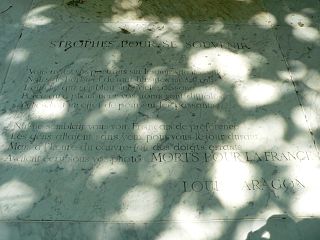 W
W"L'Affiche rouge" is a song from the album Les Chansons d'Aragon (1961) by Léo Ferré. Its lyrics are based on the poem Strophes pour se souvenir which Louis Aragon wrote in 1955 for the inauguration of a street in the 20th arrondissement in Paris, named "rue du Groupe Manouchian" in honor of 23 members of the FTP-MOI executed by the Nazis in the Mont-Valérien. The affair became known by the name of the Affiche rouge because the Germans plastered Paris in the spring of 1944 with thousands of red posters denouncing those executed as immigrants and Resistants.
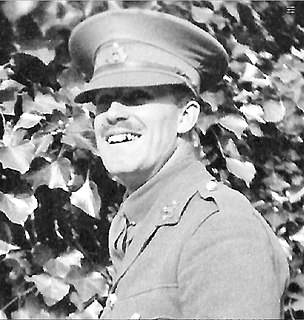 W
WAlan Gordon-Finlay (1890–1959) was a British engineer and inventor of Scottish descent born in Australia. He is best known for having co-created the Filene-Finlay simultaneous interpretation system at the League of Nations in Geneva after the First World War, the first of its kind and the fore-runner to modern interpretation systems in use throughout the world today. A patent was purchased by IBM in 1930, taking it to global production.
 W
W'Allo 'Allo! is a British sitcom television series created by David Croft and Jeremy Lloyd, starring Gorden Kaye, and originally broadcast on BBC One. The sitcom focuses on the life of a French café owner in Nouvion, during the German occupation of France in the Second World War, who has to deal with problems caused by a dishonest German officer, a local French Resistance leader, a stolen painting, and a pair of trapped British airmen, while concealing from his wife the secret affairs he is having with his waitresses. Croft and Lloyd devised the concept as a parody of BBC wartime drama Secret Army, and initially launched the programme with a pilot on 30 December 1982. The sitcom was eventually commissioned following the success of the pilot, and ran for nine series between 7 September 1984 until its conclusion on 14 December 1992. Both Lloyd and Croft wrote the scripts for the first six series, while the remainder were handled by Lloyd and Paul Adam.
 W
WThe Appeal of 18 June was the first speech made by Charles de Gaulle after his arrival in London in 1940 following the Fall of France. Broadcast to France by the radio services of the British Broadcasting Corporation (BBC), it is often considered to have represented the origin of the French Resistance in World War II. It is regarded as one of the most important speeches in French history. In spite of its significance in French collective memory, historians have shown that the appeal was heard only by a minority of French people. De Gaulle's 22 June 1940 speech was more widely heard.
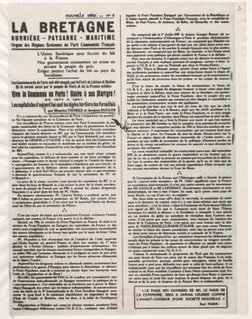 W
WLa Bretagne ouvrière, paysanne et maritime was a weekly newspaper published 1935-1950 in Brittany, France. It a regional organ of the French Communist Party in Brittany.
 W
WCode Name Melville is a feature length documentary about Jean-Pierre Melville, directed by Olivier Bohler and produced by Raphaël Millet for Nocturnes Productions in 2008. Its world premiere took place in November 2008 at the Golden Horse Film Festival in Taipei (Taiwan). It has been shown on French channel CinéCinéma Classic in March–April 2010, and on Belgian channel La Deux (RTBF) in May 2010. It is the first feature documentary about Jean-Pierre Melville since he died in 1973.
 W
WThe Comet Line (1941–1944) was a resistance organization in occupied Belgium and France in the Second World War. The Comet Line helped Allied soldiers and airmen shot down over occupied Belgium evade capture by Germans and return to Great Britain. The Comet Line began in Brussels where the airmen were fed, clothed, given false identity papers, and hidden in attics, cellars, and people's homes. A network of volunteers, often called "helpers," then escorted them south through occupied France into neutral Spain and home via British-controlled Gibraltar. The motto of the Comet Line was "Pugna Quin Percutias," which means "fight without arms," as the organization did not undertake armed or violent resistance to the German occupation.
 W
WThe Corps Franc de la Montagne Noire or C.F.M.N, was a fighting unit of the French resistance, during World War II, it was located in the mountainous area of the southwestern end of Massif Central. Its mission was to prevent German troops from going to reinforce the landing fronts in Normandy and Provence, via Montagne Noire.
 W
WThe Cross of the Resistance Volunteer Combatant is a French decoration that recognizes, as its name implies, those who fought in one of the resistance groups, or who were deported or interned for acts of resistance, or who were killed or injured while taking parts in acts of resistance against the German occupation forces during World War II. This award was created by a special law in 1954 and awarded to those who had been designated and issued cards certifying them as voluntary resistance fighters.
 W
WThe Dortan massacre was a massacre in which approximately 35 French civilians were killed by Wehrmacht volunteers in the village of Dortan, Ain during World War II. It was perpetrated by Volunteer Cossack-Stamm-Regiment 5, part of the Freiwilligen-Stamm-Division, in 12–21 July 1944 during Operation Treffenfeld. It was part of a wider German anti-partisan offensive against the French Maquis de l'Ain et du Haut-Jura, which staged a massive uprising in mid-1944 along with other French resistance groups.
 W
WWorld War II for Écouché culminated with several days of street fighting by Free French forces under General Philippe Leclerc. This engagement was part of the encirclement of the remaining German army in the final engagement of the Battle of Normandy. This final carnage of the German army was later called the Falaise Pocket, the Argentan-Falaise Pocket or Couloir de la Mort as the local French named it.
 W
WEscape and evasion lines in World War II helped people escape European countries occupied by Nazi Germany. The focus of most escape lines was assisting British and American airmen shot down over occupied Europe to evade capture and escape to neutral Spain, Switzerland, or Sweden from where they could return to the United Kingdom. A distinction is sometimes made between "escapers" and "evaders". Most of those helped by escape lines were evaders. Escape lines sometimes helped other people fleeing Nazi persecution, such as compromised spies, resistance leaders, and Jews.
 W
WLes Français parlent aux Français was a daily radio broadcast in French transmitted on the BBC. It was broadcast from the 14 July 1940: under the title Ici la France then, from 6 September 1940 to 31 August 1944, under its better known name.
 W
WThe French National Committee was the coordinating body created by General Charles de Gaulle which acted as the government in exile of Free France from 1941 to 1943. The committee was the successor of the smaller Empire Defense Council.
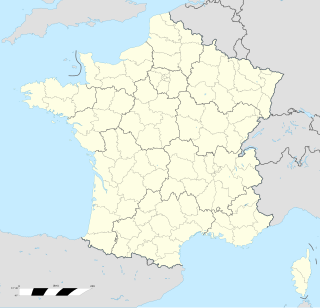 W
WFréteval is a commune in the Loir-et-Cher department of central France. The village is located on the right bank of the Loir River. Archaeological evidence indicates that the site was occupied by the 2nd century CE. In the Middle ages, the fortifications of the Château de Fréteval were used to defend the region against Anjou and, later, England. The Battle of Fréteval was fought nearby in 1194. The Forest of Fréteval extends into the northern part of the commune and was used in World War II as a refuge for Allied airmen shot down over France.
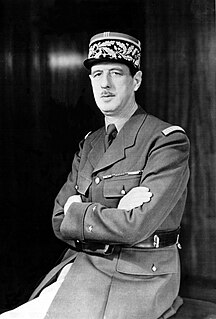 W
WGaullism is a French political stance based on the thought and action of World War II French Resistance leader General Charles de Gaulle, who would become the founding President of the Fifth French Republic.
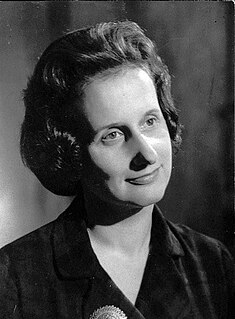 W
WSuzanne Hiltermann-Souloumiac, née Hiltermann, alias Touty, was a member of the Dutch-Paris network during the French Resistance. Captured by the Nazi she was sent to Ravensbrück concentration camp. After the liberation Suzanne Hiltermann moved to China in the 1960s. She came back to France and retired in Ardèche next to Chambon-sur-Lignon. To reward her fight for freedom and for the saving of many allied pilots during the Second World War, President Harry S. Truman gave her the Medal of Freedom (1946).
 W
W"J'attends un navire", also known as "I Am Waiting for a Ship", is a song written in 1934 by Kurt Weill with lyrics by Jacques Deval. The song was written for the musical Marie Galante but later became an unofficial anthem of the French Resistance.
 W
WLa Libération de Paris is a short historical documentary shot in secret by small units of the French Resistance during the Battle for Paris in August 1944.
 W
WDuring the Second World War, the Oisans maquis was an important base for the French Resistance, in the Oisans, between the Belledonne range and Grenoble to the north, the "Grandes Rousses" and the Croix-de-Fer pass to the east, the Drac valley to the west and the Barre des Écrins and the Provencal Alps to the south.
 W
WChâteau de la Motte is a chateau located in the commune of Joué-du-Plain (Orne) in Normandy, France. The chateau began as a Viking Motte-and-bailey castle and evolved into the 18th- and 19th-century Chateau seen today. The two most noted families who owned the site were the Gabriel Montgommerys and the Nicolas Angos, but its role as Resistance center in World War II may be its most notable episode.
 W
WThe Musée de la Résistance et de la Déportation de l’Isère is a museum located in Grenoble, France.
 W
WMylor Creek is a tidal ria in south Cornwall, United Kingdom. It is a tributary of Carrick Roads, the estuary of the River Fal and is situated approximately six miles (10 km) south of Truro and two miles (3 km) north of Falmouth .
 W
WNeither Victims nor Executioners was a series of essays by Albert Camus that were serialized in Combat, the daily newspaper of the French Resistance, in November 1946. In the essays he discusses violence and murder and the impact these have on those who perpetrate, suffer, or observe.
 W
WOperation Marathon in World War II helped allied airmen who had been shot down or crash-landed in Nazi-occupied Europe evade capture by the Germans. The British intelligence organization, MI9, created the operation to gather downed airmen into isolated forest camps where they would await their rescue by allied military forces advancing after the Normandy Invasion of June 6, 1944. The Comet Line, a Belgian/French escape line, operated the forest camps with financial and logistical help from MI9.
 W
WOn 10 June 1944, the village of Oradour-sur-Glane in Haute-Vienne in Nazi-occupied France was destroyed when 642 of its inhabitants, including non-combatant women and children, were massacred by a German Waffen-SS company.
 W
WThe Pat O'Leary Line, (1940-1944), was a resistance organization in France during the Second World War. The Pat O'Leary escape line helped allied soldiers and airmen stranded or shot down over occupied Europe evade capture by Nazi Germany and return to Great Britain. Downed airmen in northern France and other countries were fed, clothed, given false identity papers, hidden in attics, cellars, and people's homes, and escorted to Marseille, where the line was based. From there, a network of people then escorted them to neutral Spain. From Spain, British diplomats sent the escapees home via British-controlled Gibraltar. The Pat O'Leary Line was the oldest established escape line. Collectively, the escape lines helped about 5,000 allied military personnel escape occupied Europe. The O'Leary Line received financial assistance from MI9, a British intelligence agency.
 W
WThe Resistance medal was a decoration bestowed by the French Committee of National Liberation, based in the United Kingdom, during World War II. It was established by a decree of General Charles de Gaulle on 9 February 1943 "to recognize the remarkable acts of faith and of courage that, in France, in the empire and abroad, have contributed to the resistance of the French people against the enemy and against its accomplices since 18 June 1940".
 W
WFrançois de Vial was a diplomat and a Minister Plenipotentiary of France.
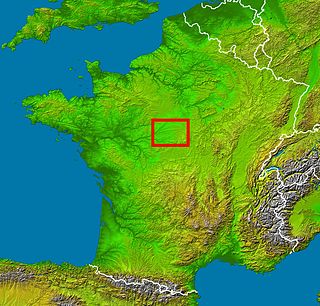 W
WPhilippe Albert de Crevoisier, Baron de Vomécourt, code names Gauthier and Antoine, was an agent of the United Kingdom's clandestine Special Operations Executive (SOE) organization in World War II. He was the organiser (leader) of the Ventriloquist network from May 1941 until the liberation of France from Nazi German occupation in September 1944. The purpose of SOE in occupied France was to conduct espionage, sabotage and reconnaissance. SOE agents allied themselves with French Resistance groups and supplied them with weapons and equipment parachuted in from England. The primary area of Vomécourt's activity was in the Sologne region about 160 kilometres (99 mi) south of Paris. Philippe's older brother Jean and younger brother Pierre were also members of the French Resistance.
 W
WWomen in the French Resistance played an important role in the context of the resistance to occupying German forces during World War II. Women represented 15 to 20% of the total number of French Resistance fighters within the country. Women also represented 15% of political deportations to Nazi-run concentration camps.